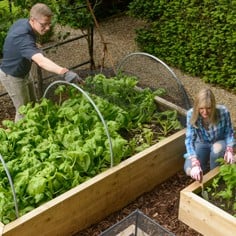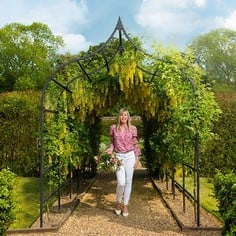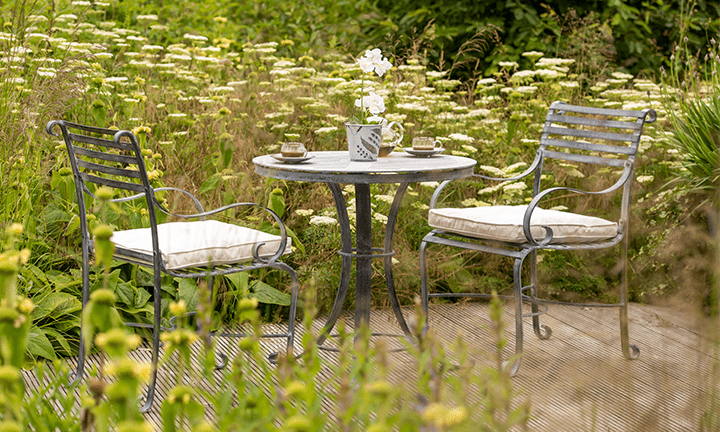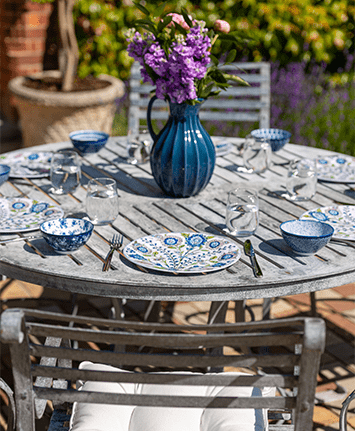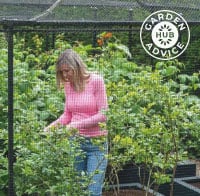Woolly Aphids
We have ten cordon apple trees trained along a south facing Yorkshire-boarded fence that have been planted for nearly 4 years. Last year and this year they have been badly infested with wooly aphid. The only thing that seems to work is the old fashioned painting the bugs with methylated spirits but that is only shutting the door after the horse has bolted.
As Autumn & Winter approach, what can we do to help prevent attacks in the future, either in winter, spring and/or next season treatment?
Thank you
Vanessa
Unfortunately woolly aphid is a common pest of edible and ornamental apple trees, the insects are hidden under the white fluff that can be mistaken for a mould. These aphids suck sap from the woody stems unlike the foliage with other aphids.
Between spring and early autumn, the infested parts of the trunk and branches are covered with a fluffy white waxy material. This is secreted by the blackish brown aphids. The thinner bark around old pruning cuts is a prime site for woolly aphid infestation in spring but by mid-summer the pest is likely to have spread on to the younger shoots.
As a non chemical/organic approach, as your trees are cordons and therefore quite small, I would suggest that when you prune your trees this winter that you scrub the aphid colonies with a stiff brush to remove them. You should be able to spot the affected shoots as they often develop soft, lumpy growths in the bark as a result of the aphids feeding.
Harrod Horticultural has two organic sprays available on the website; Organic 2 in 1 Garden Pest and Disease Spray & Insect Killer Spray - it may help to spray with one of these products after you have removed the aphids to eradicate as many as you can.
There is another product that may help - Winter Tree Wash is a solution that Harrod stocks on the website. Based on natural plant oils, the tree wash liquid is mixed with water and sprayed on dormant fruit trees and bushes where it takes care of hibernating pests and their eggs; the result is far reduced pest activity when the weather warms up. The tree wash is supplied in a 500ml bottle complete with dosing chamber; just 10ml of winter tree wash will make a 100ml of spray and key application times are between October and December and again in late March and it's RHS recommended!
Another approach is to encourage more birds and ladybirds and other predators into your garden to naturally take care of the aphids.
Good luck with this – please let me know if you are successful.
Kind Regards
Lynn Burton
Horticultural Adviser






